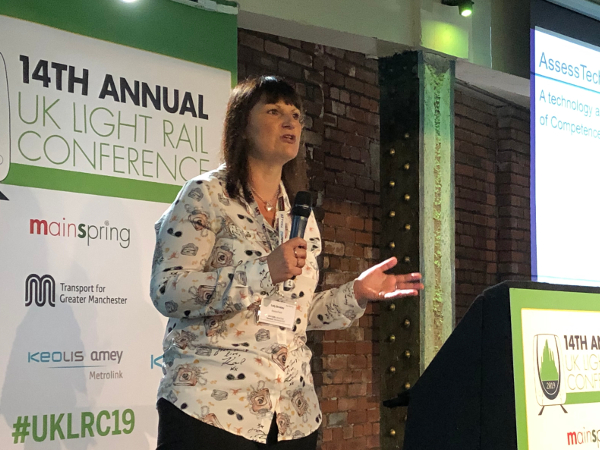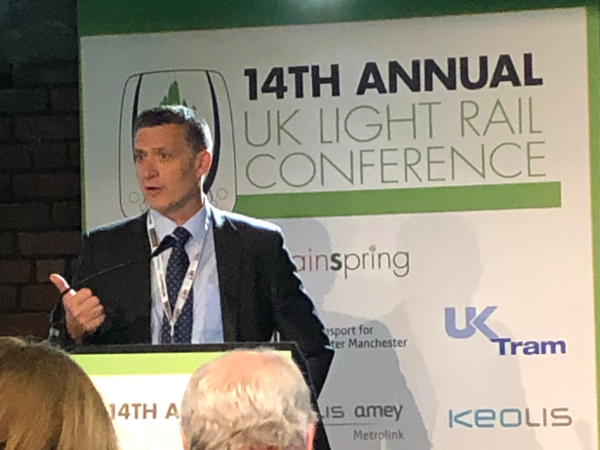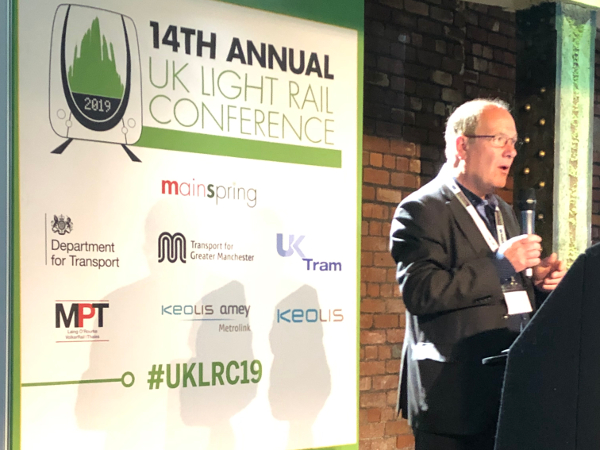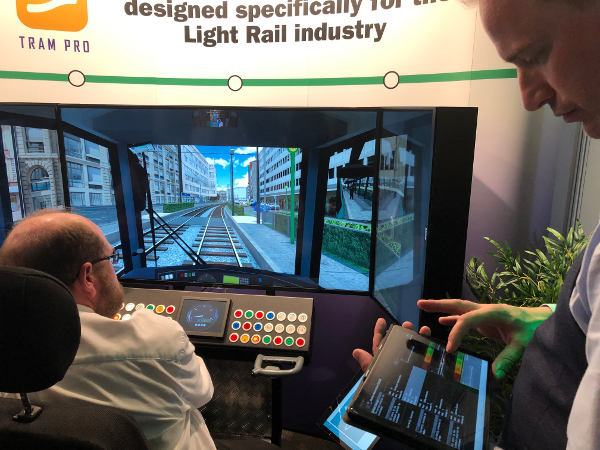Developmental Competence explained at the UK Light Rail Conference 2019
‘Addressing the challenges of climate change offers a massive opportunity for light rail’, was the key theme at this year’s UK Light Rail Conference #UKLRC19, hosted in the trendy Media City area of Manchester from 23 – 24 July 2019.
AssessTech were at the conference to showcase developmental competence management solutions for light rail and explain why is it crucial for light rail companies to give this some serious consideration.
Director of Operations, Sally Brinkley, gave a plenary talk on day 2 around how developmental competence management is the future for light rail to improve the performance of drivers, improve visibility and confidence for light rail operators, to reduce incident rates and eliminate a lot of the costs from light rail business.

Sally also shared insights into how Tram Operations Limited are using the platform. Andy Wallace from Tram Operations Ltd said following their experience,..
“The level of dynamic risk is greater on a tramway than on heavy rail. Trams operate in both segregated and mixed traffic environments and as such our drivers find their trams regularly surrounded by pedestrians, cars and bicycles. We use the national occupational standards to evaluate our driver performance, but we wanted to strengthen our risk controls and felt electronic competence management was the right solution for our organisation.”
You can view Sally’s full presentation from the conference but playing the video.
Craig O’Brien, Engineering Manager for UK Tram said, “It is assumed that most organisations understand the importance of competence within the workplace and that it helps define how a person should perform their role. Given the safety critical nature of the majority of roles within the Light Rail sector, competence management is of essential importance. However, it is not deemed sufficient to identify competence requirements, there must also be a robust process for delivering, capturing and updating in order to adopt a culture of continued improvement as roles evolve. The light Rail sector is to some degree unique in many of its competence based tasks and therefore it cannot rely solely on existing methods in other industries. UK Tram along with its member organisations strongly believes that developmental competence management is at the core of its success and key to driving standards and safety. It is also a driving factor and direct link to other areas such as employee development and recruitment and can be a useful tool in aiding these processes. This is why the industry is committed to understanding the requirements for its personnel in order to make sure delivering competence is an integral part of the day to day structure of the numerous departments within these organisations”.
At the conference, Head of Operations for Greater Manchester, Alex Cropper, told the attendees that Manchester’s key focus is to reduce their carbon footprint and generate cleaner air by reducing the number of cars on the road by 10% by 2035. As part of this solution, the city’s aims to improve the Metrolink within Manchester, with a key focus on improving safety and minimising incidents as part of this strategy. Currently Metrolink are ranked within the top 5 light rail services in Europe but the city has big plans to move this into the top 3 within the next few years.
Similarly, the Thames Gateway which stretches from Canary Wharf in London to Southend in Essex experiences over 50 million vehicles per year travelling on their roads. Managing Director Gordon Pratt of Thames Gateway Tramlinkis focusing on offering light rail solutions to resolve these problems as the transport infrastructure is poor and air pollution is very high.


As well as the challenges facing the cities the conference also provided insight into some of the innovative solutions that are being offered for light rail.
We heard from UK Trams who are focused on sharing best practice across the industry and are actively involved in proactively identifying innovative solutions for the industry on behalf of their members. David Keay and Laura Reardon shared some insights into the work they are doing with the Heads of Safety to develop a risk model that integrates with ORR RM3 processes. This has already been rolled out on Manchester Metrolink and is now being scheduled for 8 other regions.
Industry consultant Ian Rowe shared the findings of their latest report which looked at solutions to ‘reduce the likelihood of serious accidents due to tram drivers becoming inattentive because of fatigue or other effects’. They have explored technologies such as wearables, facial recognition and task monitoring. Perclos (or facial recognition systems) was identified as the most effective solution. The next steps are to undertake controlled lab testing via a simulator in partnership with Tram Pro. We look forward to hearing the final results.
A great conference with a great audience. We were delighted to be part of this year’s UK Light Rail Conference.







